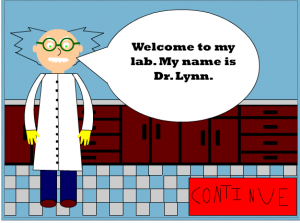
Globaloria
By Jennifer Roland
Identifying bones in a skeleton, learning how chemical elements react, understanding alternative energy uses. These lessons have jumped out of the textbook and into the hands of students who created video games that teach the concepts to their peers.
It's part of Globaloria, a national program that allows middle school and high school students to design educational video games on topics related to math, science, engineering and social issues. In the process of creating the games, they learn about the topics, as well as how to program a video game.
In Mission Impossib-Oil, for example, players guide a crew tasked with cleaning up an oil spill. They'll have to make decisions about biological resources and human resources based on Environmental Sensitivity Index mapping guidelines, as well as how to spend their budget.
William Dorsey, who teaches biology at Capital High School in Kanawha County, writes that his students are not only learning about the topics they create the games around, but also "soft skills" like self-directed learning and teamwork. His students “taught themselves the guiding principles of biological classification, a topic that I often had to rush or ignore,” he writes. Though Dorsey has felt crunched for time to cover subjects, he believes adding the game design curriculum is worth it. “My students have more than met the challenge of keeping up with a fast-paced curriculum, and they have often been slightly ahead of other classes covering the same material.”
With all the work to be done in labs, Dorsey said creating the games gives his students a creative outlet to look forward to.

